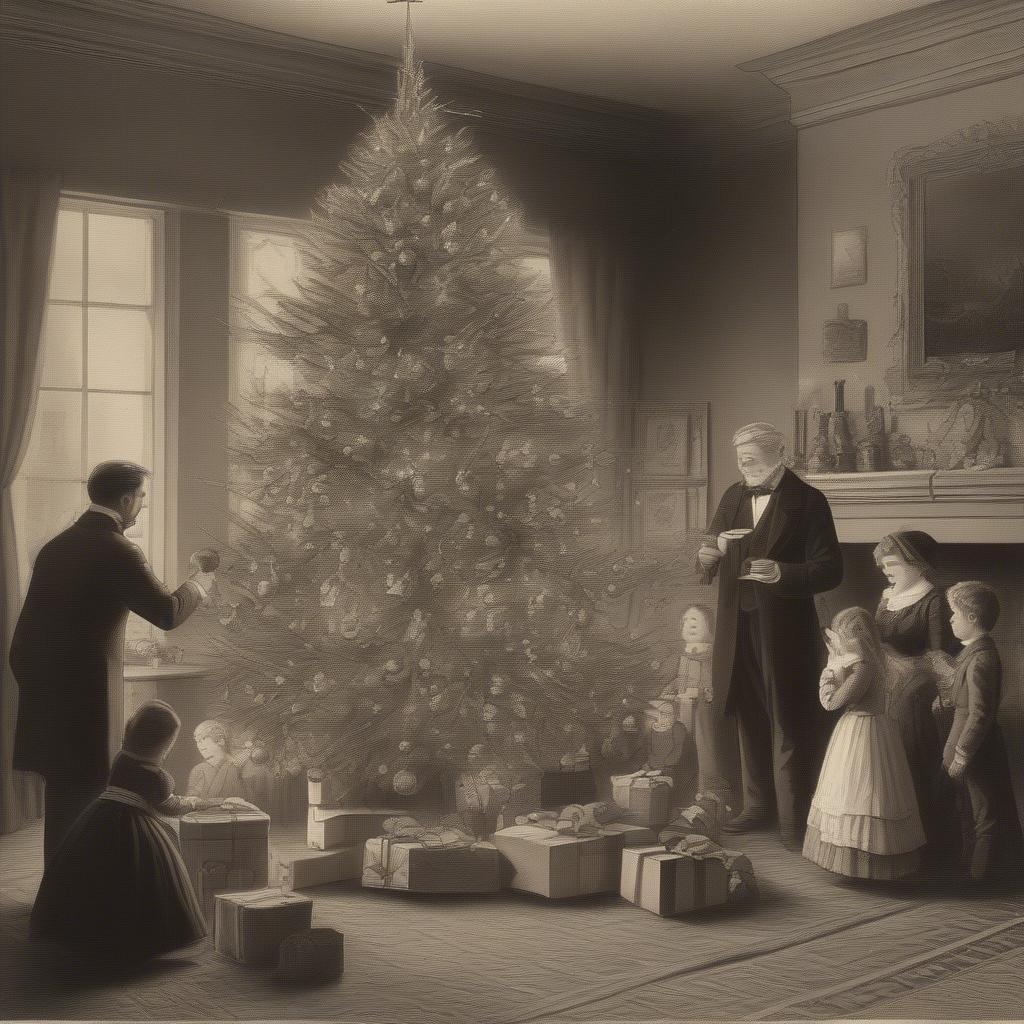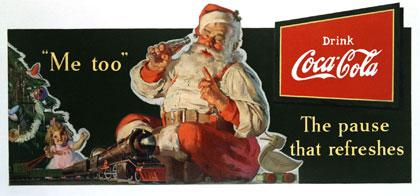
The question of Who Invented Christmas isn’t as simple as pointing to a single person or event. Christmas, as we celebrate it today, is a fascinating blend of traditions, beliefs, and historical influences that have evolved over centuries. While the specific date of December 25th was chosen by the Roman Catholic Church in the 4th century, the origins of celebrating mid-winter festivals predate Christianity. So, the story of “who invented Christmas” is truly a story of cultural fusion and adaptation.
Table Content:
- From Pagan Festivals to Christian Celebrations: Tracing the Roots of Christmas
- The Birth of Jesus: A Pivotal Moment in Christmas History
- The Evolution of Christmas Traditions: A Cultural Tapestry
- Christmas Through the Ages: From Medieval Feasts to Victorian Merriment
- The Victorian Era: Shaping Modern Christmas
- Christmas in the Modern World: A Global Celebration
- The Commercialization of Christmas: A Modern Phenomenon
- Conclusion: The Ever-Evolving Story of Christmas
- FAQ
From Pagan Festivals to Christian Celebrations: Tracing the Roots of Christmas
Long before the arrival of Christianity, many cultures celebrated mid-winter festivals. These festivals were often tied to the winter solstice, the shortest day of the year, marking the symbolic return of the sun and the promise of spring. In Roman times, Saturnalia, a week-long festival honoring the god Saturn, was celebrated with feasting, gift-giving, and general revelry. Another Roman festival, Dies Natalis Solis Invicti, celebrated the birth of the unconquered sun. These festivities provided a backdrop for the eventual celebration of Christmas.
The Birth of Jesus: A Pivotal Moment in Christmas History
While the exact date of Jesus’ birth remains unknown, the Roman Catholic Church chose December 25th as the date to celebrate his nativity. This choice likely aimed to incorporate existing pagan celebrations into the Christian calendar, making the transition to Christianity smoother for newly converted populations. The celebration of Christmas gradually spread throughout the Christian world, becoming a central feast in the liturgical calendar.
The Evolution of Christmas Traditions: A Cultural Tapestry
Many beloved Christmas traditions have their roots in pre-Christian winter festivals. The practice of decorating with evergreen boughs, symbolic of life enduring through winter, predates Christianity. Gift-giving, a central part of modern Christmas, echoes the Roman tradition of exchanging presents during Saturnalia. Even the feasting and merrymaking associated with Christmas find parallels in ancient mid-winter celebrations.
Christmas Through the Ages: From Medieval Feasts to Victorian Merriment
The Middle Ages saw Christmas evolve into a major religious and social event. Grand feasts, carols, and nativity plays became popular traditions. The Reformation brought changes to Christmas celebrations in some parts of Europe, with certain Protestant denominations initially rejecting some of the more festive aspects of the holiday. However, Christmas continued to be celebrated in various forms, eventually regaining its festive character in many Protestant communities.
The Victorian Era: Shaping Modern Christmas
The Victorian era significantly shaped the way we celebrate Christmas today. Prince Albert, Queen Victoria’s husband, popularized the Christmas tree tradition in Britain, bringing the German custom to a wider audience. Christmas cards, carols, and stories like Charles Dickens’ “A Christmas Carol” contributed to the sentimental and festive atmosphere we associate with Christmas.
 Victorian Christmas Family Celebration
Victorian Christmas Family Celebration
Christmas in the Modern World: A Global Celebration
Today, Christmas is celebrated across the globe, often incorporating local customs and traditions. From the vibrant Christmas markets of Europe to the festive parades in the Americas, Christmas has become a truly global celebration, reflecting its rich history and ongoing evolution. While the core of the holiday remains rooted in the Christian celebration of the birth of Jesus, the way it’s celebrated reflects the diverse cultures that have embraced it.
The Commercialization of Christmas: A Modern Phenomenon
The modern era has seen the increasing commercialization of Christmas. While gift-giving has always been a part of the celebration, the emphasis on consumerism has grown significantly. However, amidst the commercialization, the spirit of giving, family gatherings, and festive traditions continue to be at the heart of Christmas for many people.
 Modern Christmas Market Festive Atmosphere
Modern Christmas Market Festive Atmosphere
Conclusion: The Ever-Evolving Story of Christmas
So, who invented Christmas? The answer lies in the tapestry of history, woven with threads of ancient traditions, religious beliefs, and cultural influences. While the birth of Jesus is the central event celebrated by Christians, the holiday’s traditions and celebrations have been shaped by centuries of cultural exchange and adaptation. From pagan winter festivals to Victorian customs and modern global celebrations, Christmas continues to evolve, reflecting the diverse cultures that embrace it. The story of Christmas isn’t about a single inventor, but about the ongoing evolution of a holiday that resonates with millions worldwide.
FAQ
When was Christmas first celebrated? The celebration of Christmas on December 25th was established by the Roman Catholic Church in the 4th century.
Why is Christmas celebrated on December 25th? While the exact birthdate of Jesus is unknown, December 25th was chosen, likely to coincide with existing pagan winter solstice celebrations.
What are some pre-Christian traditions that influenced Christmas? Decorating with evergreens, gift-giving, and feasting were all part of pre-Christian winter festivals.
How did the Victorian era shape modern Christmas? The Victorian era popularized traditions like the Christmas tree, Christmas cards, and carols.
How is Christmas celebrated around the world? Christmas is celebrated globally, often incorporating local customs and traditions, reflecting the holiday’s diverse cultural influences.
What is the religious significance of Christmas? For Christians, Christmas celebrates the birth of Jesus Christ, whom they believe to be the Son of God.
How has Christmas become commercialized? Modern Christmas has seen an increased emphasis on consumerism and gift-giving, although the spirit of generosity and family remain central for many.

